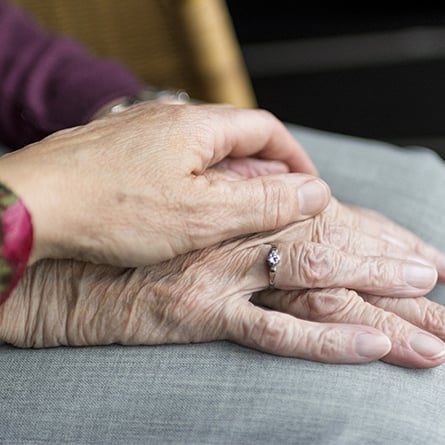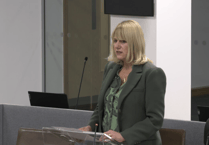The cost-of-living crisis is having a disproportionate impact on unpaid carers and eroding their rights, the Senedd has heard.
Plaid Cymru’s Sioned Williams highlighted a Carers Wales report which found that 76 per cent of unpaid carers receiving carer’s allowance are struggling with cost-of-living pressures.
The party’s shadow social care minister told MSs: “I feel passionately about improving support for unpaid carers. I also have personal experience of being a carer, and have seen first-hand the struggle and strain that caring and a lack of support can inflict on a family.”
According to the latest census, more than 311,000 people in Wales provide unpaid care to family members or friends and 170,000 provide care for more than 50 hours a week
Ms Williams said more than 1,100 unpaid carers responded to the Carers Wales survey, with nearly half of those on carer’s allowance cutting back on essentials like food and energy.
Two-thirds of respondents said the cost of living has had a negative impact on their physical and/or mental health, with 17 per cent in debt as a result of caring.
The South Wales West MS pointed out that the main benefit is carer’s allowance, worth £76.75 a week.
“It's the lowest benefit of its kind and its eligibility criteria means the vast majority of unpaid carers are unable to claim it,” she said.
Rights
Ms Williams warned that financial pressures are undermining carers’ rights under the Social Services and Well-being Act 2014.
Carers Wales research found that only 15 per cent of carers in Wales have received a carer’s needs assessment despite it being a legal right.
Ms Williams said unpaid carers should be recognised as a priority group in the design and delivery of all future anti-poverty policy interventions.
“Getting money to those who need it is the best way of preventing crisis,” she told the Senedd. “We must have simpler and more consistent ways of supporting unpaid carers.”
She called for a one-off £500 recognition payment from Welsh Government for unpaid carers in receipt of carer’s allowance to be made annually.
Young carers
Sarah Murphy MS, a Labour backbencher, who represents Bridgend, highlighted the experiences of Ollie Mallin, a member of the Welsh Youth Parliament.
Describing his experiences as a young carer, Ollie said: “'I care for my younger brother who has many complex additional needs. I've cared for him since I was five.
“I wouldn't say that my caring role impacts my life – I would say that it is my life.”
Jane Dodds MS said Ed Davey, the Liberal Democrats’ UK leader, was also a young carer while growing up.
“Ed Davey's mother contracted cancer when he was eight,” she said. “His father had already died, sadly. When he was 13, she was hospitalised and sadly died.
“And I remember this story: the story was that Ed, who also looked after his younger brother, was the only person sitting at her bedside when she died. Imagine that: you are a 13-year-old and your mother is dying and you’re the only person there.”
Recognition
Mabon ap Gwynfor, Dwyfor Meirionnydd MS and Plaid Cymru’s shadow health minister, highlighted that unpaid carers save the NHS and councils more than £10 billion.
“We know that without them the health service would be on its knees,” he said.
Replying to the short debate on Wednesday, 8 November, Julie Morgan MS recognised the enormous contribution of unpaid carers.
The deputy minister for social services acknowledged that the cost-of-living crisis has had a significant impact on unpaid carers, who are more likely to be in low-income households.
Ms Morgan said the carers’ support fund has helped 24,000 unpaid carers on low incomes since its launch in October 2020.
The deputy minister also highlighted a £9 million investment in a short break scheme which aims to help 30,000 unpaid carers take a break from caring.
She said: “I want to end by giving my sincerest 'thank you' to all the unpaid carers.”




